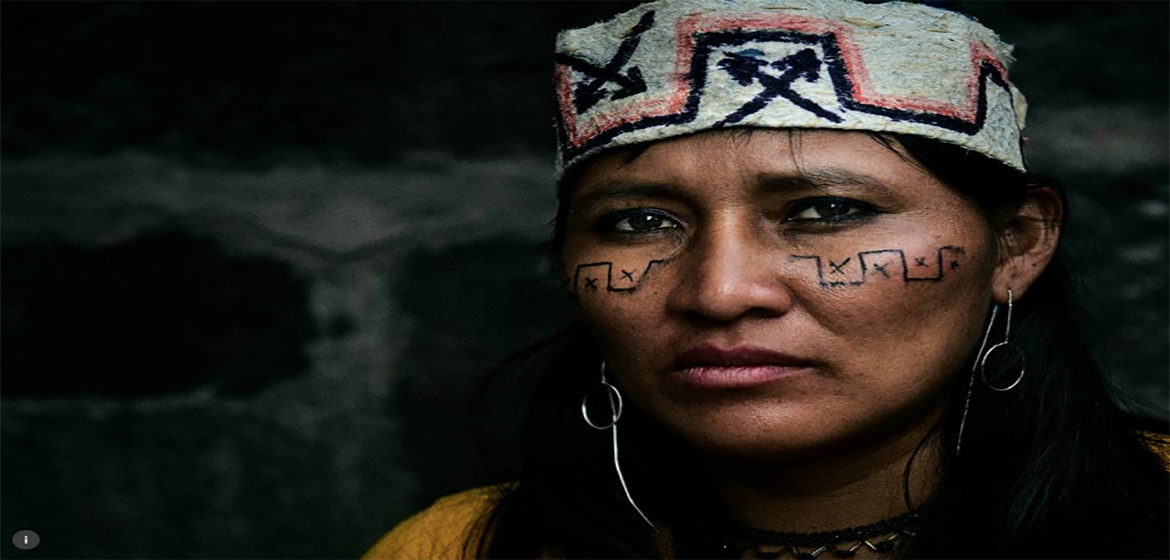BOGOTA, March 23 (Thomson Reuters Foundation) - Indigenous women from Ecuador's Amazon rainforest have called on the country's president to end oil and mining projects on their ancestral lands, as the nation pushes to open up more of its rainforest to drillers.
Their meeting with Lenin Moreno at the presidential palace in the capital Quito late Thursday comes after the Andean nation launched a new bidding round this month for foreign companies to develop oil and gas reserves.
Ecuador, one of the smallest producers in the Organization of the Petroleum Exporting Countries (OPEC), hopes to attract some $800 million in investment to boost production that the government says is vital to improve its sluggish economy.
But women from Amazon indigenous groups say oil exploration damages their livelihoods, the environment and water sources on ancestral lands, and comes amid growing deforestation in unspoiled areas of the biodiverse region.
"We don't want more oil and mining companies," Alicia Cahuiya of the Waorani group told the president at the meeting.
"Oil has not brought development for the Waorani - it has only left us with oil spills and sickness."
The women also told the president, who was flanked by several ministers, that the government was failing to consult properly with indigenous communities about planned oil and mining projects on their lands, a right they are entitled to under law.
"The oil and mining issue does not stop worrying me, because there is a future to take care of," Moreno said at the meeting, which was streamed live on Facebook.
"What you are completely right about is the importance of dialogue consensus, dialogue decisions ... about any decisions of my government with respect to oil and mining concessions."
The women presented the president with a list of demands they call the "Mandate of Amazonian Women", which includes stopping oil, mining and logging projects, and conducting official investigations into attacks against indigenous leaders.
"I hope (the president) will take this mandate seriously," Nina Gualinga, one of about a dozen women who took part in the meeting, told the Thomson Reuters Foundation.
Simmering tensions - including protests - between indigenous communities seeking to protect their lands and state-owned and foreign oil companies have been ongoing in Ecuador for decades.
The issue has come before the Inter-American Court of Human Rights, which in 2012 ruled in favour of Ecuador's Sarayaku indigenous community in the Amazon.
The court said Ecuador had violated their right to prior, free and informed consultation before drillers in the late 1990s started exploration on lands where the Sarayaku people live.
"We will return to our communities and wait for a response from the government," said Zoila Castillo, vice-president of the parliament of the Confederation of Indigenous Nationalities of the Ecuadorian Amazon (CONFENIAE).
"If we do not receive a response in two weeks, we will be back," she said. (Reporting by Anastasia Moloney @anastasiabogota, Editing by Robert Carmichael. Please credit the Thomson Reuters Foundation, the charitable arm of Thomson Reuters, that covers humanitarian news, women's rights, trafficking, property rights, climate change and resilience. Visit http://news.trust.org)




